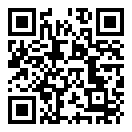In & Out of Propaganda
After a long and bitter struggle in the 1970s and 1980s the people of Mozambique, Angola, Zimbabwe, Namibia and eventually South Africa achieved national independence, self-determination and democracy. The struggle was violent, however guns were not the only weapons used in the struggle for liberation in the subcontinent. Propaganda and counter-propaganda played an important role in mobilizing support and denouncing opponents. In particular, posters and films were powerful visual media used by all sides of the struggle. Being relatively easy to produce and distribute, posters resulted in a merger of artistic expression and political mobilization.
The Visual History Lab gives students at the University of Basel the opportunity to work extensively with visual material such as posters, film and photographs provided by the film and poster collection of the Basler Afrika Bibliographien. The aim is to creatively contextualize and rethink the material from today’s perspective. To the public, the Visual History Lab 2018 offers film screenings, changing exhibitions and discussions during three public events:
22. November: Exile – moderation Winnie Kanyimba
23. November: War – special guest Simon Bright
24. November: Art – special guest Lionel Davis
Simon Bright, born in 1952, is a Zimbabwean/South African director/producer. He formed Zimmedia in 1985 with Ingrid Sinclair. They made films celebrating the resistance of the Frontline States to Apartheid. These films showed internationally from East German to the US. Simon was one of the Zimbabwean producers who founded the First Frontline Film Festival, later The Southern African Film Festival. He sees making film as a way of exploring the buried dimensions of history, culture and politics.
Lionel Davis, born in 1936, is a South African visual artist, teacher, and public intellectual. His political activities led to his imprisonment by the apartheid state in 1964 and Davis spent seven years in Robben Island, followed by five years of house arrest. After his release, he became a driving force in the Community Arts Project in Cape Town. As a screen-printing instructor, he assisted many individuals and organizations in producing powerful visual propaganda material such as posters and t-shirts that mobilised for the fight against oppression. Davis taught and inspired many people who wished to express themselves and their aspirations through art.
In 2014 the Basler Afrika Bibliographien launched the “in motion” film project. It aims to use the medium of film to depict the cultural and ethnic diversity of southern African countries and to illustrate its economic and political complexities.
The Visual History Lab is a collaboration between the Centre for African Studies of the University of Basel and the Basler Afrika Bibliographien. We also thank the following institutions for their financial support: Max Geldner Stiftung Basel, Freiwillige Akademische Gesellschaft Basel, Department Geschichte der Universität Basel.
Datum
- 22. - 24. Nov 2018
- Abgelaufen!
Uhrzeit
- 17:00 - 21:00
Ort
Veranstalter
Basler Afrika Bibliographien
Weitere Veranstalter
-
Zentrum für Afrikastudien
